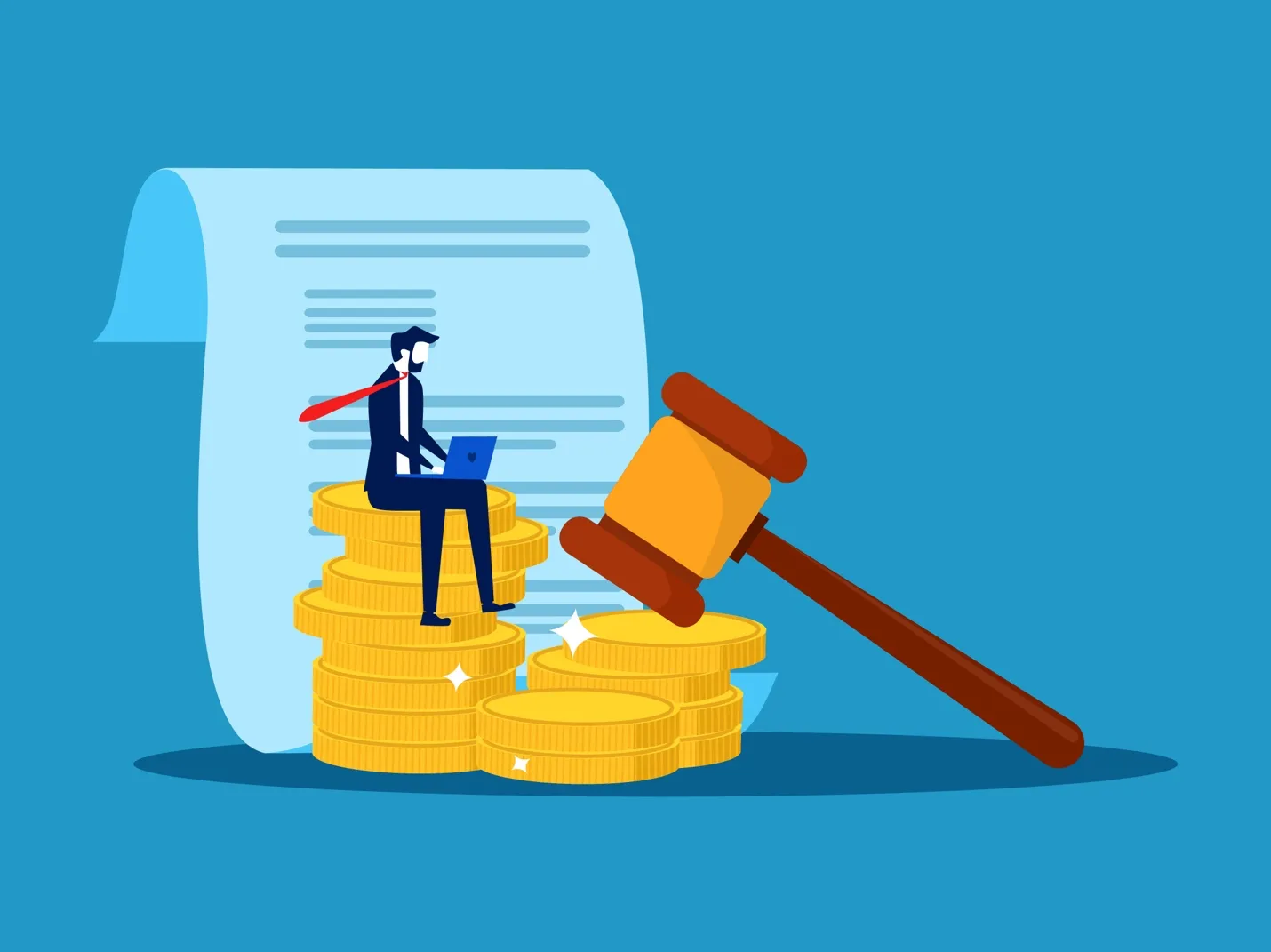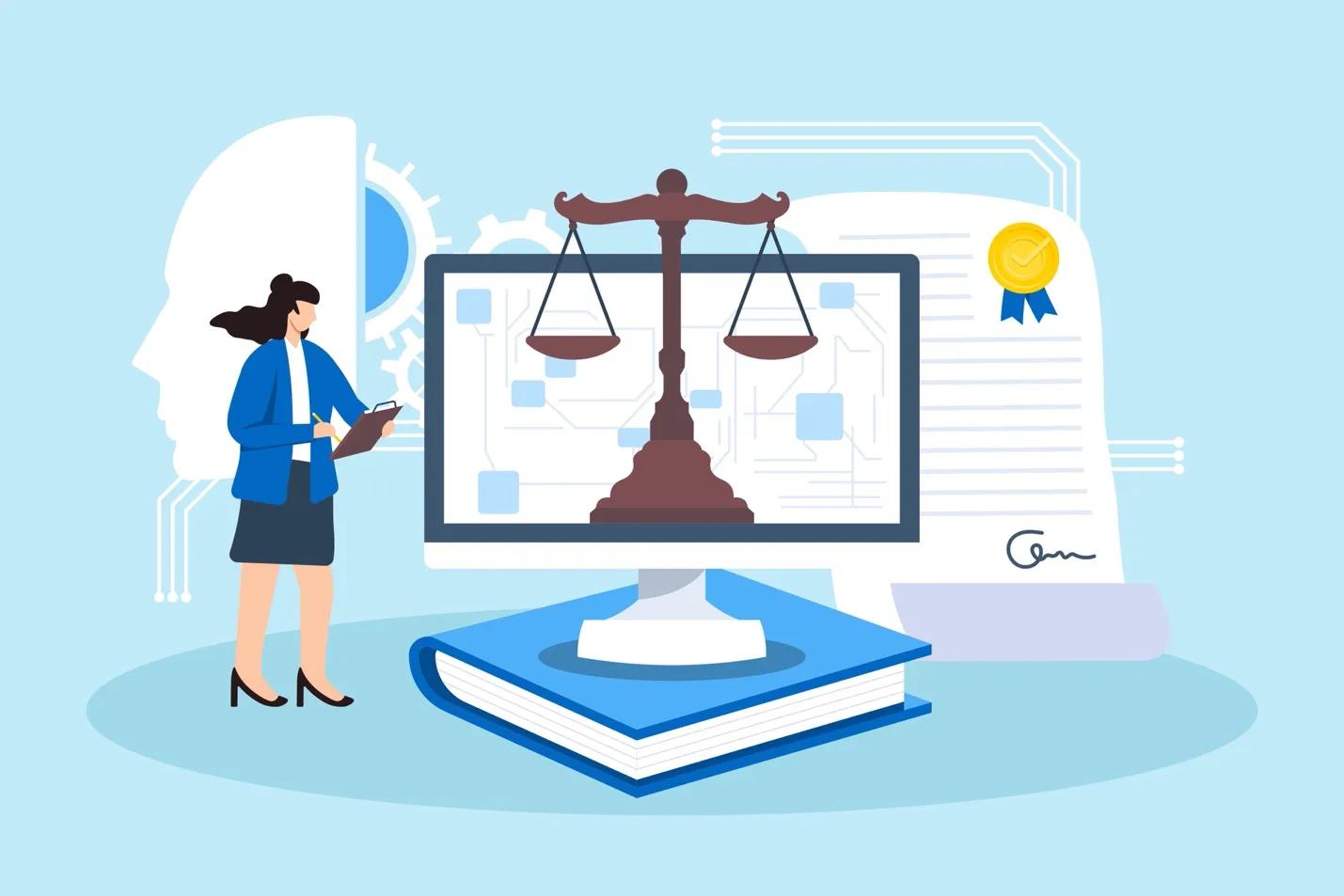How to Choose the Best Business Startup Lawyer?
How to Choose the Best Business Startup Lawyer?
Starting a new business is an exciting yet complex endeavour, and one of the most crucial early decisions is choosing the right legal advisor.
A knowledgeable business startup lawyer can help you navigate the legal challenges, from setting up the appropriate business structure to ensuring compliance with regulations.
With their guidance, you can build a strong foundation for your enterprise, minimizing risks and setting the stage for long-term success.

| In this article, SME Lawyers guide you how to select the ideal legal expert for your business needs, emphasizing key factors, strategies, and tips to make an informed choice! |
|---|
What is a Startup?
Before discussing how to choose the best business startup lawyer, it’s essential to understand what a startup is! A startup is a new business venture in its initial stages, founded by entrepreneurs with the goal of bringing a specific product or service to the market. These companies are often marked by innovative ideas and a focus on rapid growth.
Typically, startups operate with limited resources and face high initial costs, relying on funding from founders, friends, family, or external investors. Unlike established businesses, startups may not yet have a fully developed business model and often take several years to achieve profitability.
Startups can take various forms, from sole proprietorships to corporations, and may target both new and existing markets, either domestically or internationally. Although startups carry a high risk of failure, they also offer unique opportunities for creativity, innovation, and learning!
Why the Expertise of a Business Lawyer Matters for Startups?
A business startup lawyer provides invaluable support that goes beyond mere legal counsel; they act as a strategic ally in navigating the intricate legal landscape. From the initial establishment of the business to contract negotiations, intellectual property protection, and compliance with local regulations, a skilled lawyer ensures that the startup adheres to all relevant legal frameworks.
For startups, legal challenges can often arise unexpectedly. Issues such as contract disputes, equity division among cofounders, or regulatory compliance require swift and accurate solutions. A business lawyer who specializes in startups can anticipate potential problems and mitigate risks before they escalate, ultimately saving both time and resources.
What Are the Key Steps to Finding the Right Business Startup Lawyer?
Choosing the best business startup lawyer involves careful consideration of several key factors that can significantly influence your startup’s success. It’s essential to find a lawyer who understands your unique needs, as this will ensure you receive effective representation tailored specifically to your situation.
Below are essential steps to guide you in selecting the ideal business startup lawyer for your circumstances:
Defining Your Legal Needs
Defining your legal needs is an essential initial step in selecting the right business startup lawyer, as it sets the foundation for a targeted and efficient search. By thoroughly assessing the specific legal services your startup requires, you can concentrate your efforts on lawyers who specialize in those particular areas.
This clear understanding streamlines the process and helps you avoid options that do not align with your business goals. It also enables you to pinpoint lawyers who possess the relevant skills and experience to effectively support your startup’s unique requirements.
Here are some key legal services where a startup lawyer can provide invaluable support:
- Business Structure: Selecting the right legal structure, such as a sole proprietorship or incorporation, is a critical decision for any startup. This choice affects tax obligations, liability, and overall business operations.
- Sole Proprietorship: This legal structure is simple to set up with minimal paperwork. However, it carries significant risks, as the owner is personally liable for all business debts and obligations, putting personal assets at risk of loss.
- Corporation: Ideal for larger businesses or those seeking investment, this structure offers liability protection. However, it comes with more complex regulations and additional administrative responsibilities, making it less straightforward than a sole proprietorship.
A knowledgeable lawyer can guide you through the pros and cons of each structure, helping you make an informed choice that aligns with your business goals, financial situation, and long-term vision.

- Regulatory Compliance: Adhering to all relevant local, provincial, and federal regulations is essential for the smooth operation and long-term success of your business. Compliance ensures that your startup meets legal standards, avoids penalties, and maintains a positive reputation within your industry.
This process involves understanding and staying updated on a range of industry-specific regulations, such as health and safety standards, data protection laws, environmental regulations, and employment laws. A startup lawyer can help navigate this complex regulatory landscape, advising on the necessary permits, licenses, and certifications.
- Contracts and Agreements: Drafting clear contracts is crucial to prevent miscommunication and legal complications in business dealings with clients, suppliers, and partners. Well-structured contracts provide clarity by outlining the responsibilities, and expectations of all parties involved, reducing the likelihood of disputes.
For startups, common agreements include:
- Employment Contracts: These define the terms of employment, including job duties, salary, benefits, confidentiality, and termination conditions.
- Shareholder Agreements: This type of contract sets out the rights, obligations, and ownership stakes of shareholders, as well as procedures for decision-making and handling disputes.
- Leasing Agreements: Essential for securing business premises, these agreements detail the terms of lease, including rent, duration, and responsibilities for property maintenance.
A startup lawyer will ensure these agreements are tailored to your specific needs, legally sound, and able to protect your business interests while fostering strong professional relationships.
- Intellectual Property Protection: Safeguarding your brand through trademarks, patents, and copyrights is vital from the very beginning. Early protection helps prevent disputes and ensures your innovations are secure. Many startups overlook the significance of intellectual property protection, but it’s essential for long-term success.
A startup lawyer can help you legally protect your ideas, branding, and inventions, preventing unauthorized use by others. This is particularly important for tech startups, where patents and proprietary software are vital assets that drive growth and competitive advantage.
- Fundraising: A startup lawyer can guide you through the complexities of fundraising, helping you navigate the legal implications of acquiring investments.
By having a clear understanding of your legal needs, you can better assess potential business lawyers and find one whose expertise aligns with the unique requirements of your startup. This proactive approach will facilitate a successful partnership that supports your business’s growth and sustainability.
Defining Your Budget
Defining your budget is a vital second step in selecting the right business startup lawyer, as it influences the type of legal services you can afford and shapes your overall approach to legal representation. Startups typically operate with limited financial resources, so establishing a clear budget helps prioritize legal needs and ensures that funds are allocated effectively.
When determining costs, it’s important to understand the various pricing structures that law firms may offer. Many firms specializing in startups might provide flexible payment options, including:
| Payment option | Explanation |
|---|---|
| Hourly or retainer fees | Startups seeking ongoing legal support can choose between hourly billing or a retainer arrangement. Hourly fees charge clients for the time spent on their legal matters, providing flexibility for changing needs. A retainer involves an upfront fee for guaranteed access to legal services over a specified period. This approach is ideal for ongoing tasks like contract reviews and compliance checks, ensuring familiarity with the startup’s objectives while helping manage costs. Both options offer essential legal support, allowing startups to focus on their core activities. |
| Fixed fees | Some law firms provide fixed fee arrangements for straightforward tasks, such as initial incorporation or the review of legal documents. This approach allows startups to have a clear understanding of their costs upfront, which simplifies budgeting and financial planning. By agreeing to a fixed fee, clients can avoid unexpected expenses that can arise with hourly billing. Additionally, this arrangement is particularly beneficial for startups that may not require continuous legal services but need specific tasks completed efficiently. |

In addition to understanding these cost structures, it’s essential to ask pertinent questions about pricing and billing practices when evaluating potential lawyers. This includes inquiries about the team members working on your account, their billable rates, and any possible discounts for startups.
By carefully defining your budget and understanding the cost implications, you can make informed decisions and find a lawyer who fits your financial parameters while meeting your legal needs.
Evaluating Location
When choosing a lawyer, the location is an important factor, but it shouldn’t be the only consideration. While having a lawyer nearby offers convenience for in-person meetings and consultations, the priority should be on finding someone with specialized knowledge and expertise relevant to your industry. A local lawyer may not always meet your specific needs.
If your startup aims to establish itself in geographic markets that are not necessarily close to your location, consider engaging a startup lawyer based in those areas. Working with them remotely can provide access to invaluable insights into local regulations and business practices that are critical for your success.
This strategic approach ensures that you have the best legal support tailored to the unique challenges of your target market, regardless of physical distance.
Researching and Evaluating Potential Business Startup Lawyers
Once you’ve defined your legal needs, set a budget, and considered the significance of location, you can begin your search for a business startup lawyer who meets your specific requirements. Conducting a thorough background check on any lawyers you find appealing is essential for making an informed choice.

Start by investigating the experience, education, and reputation of potential lawyers within the startup community. Focus on reviews and testimonials from previous clients, particularly those who are founders of startups similar to yours. These insights will give you a clearer understanding of the lawyer’s effectiveness, approach, and success rates in managing cases like yours.
Meeting and Comparing Business Startup Lawyer
Once you’ve compiled a list of potential business startup lawyers, the next vital step is to meet with these lawyers and compare your options. This process enables you to evaluate their fit for your unique situation and identify which lawyer best aligns with your business objectives.
Here’s how to effectively assess and compare lawyers during this stage:
Schedule Consultation Meetings:
Initiate the selection process by scheduling initial consultation meetings with several business startup lawyers. These face-to-face interactions provide an invaluable opportunity to assess each lawyer’s expertise, communication style, and overall approach. To maximize the effectiveness of these meetings, come prepared with a list of thoughtful questions that address your specific needs.
Prepare Questions:
When meeting with each lawyer, consider asking the following key questions about these topics:
Relevant Experience and Case Studies:
- What percentage of your clients are startups?
- Can you provide examples of startups you have worked with, particularly in my industry?
- Have you dealt with any legal issues similar to what my business might face?
These questions will help you evaluate their experience and determine whether they have the necessary qualifications and background to effectively manage the legal challenges that your startup may face.
Fee Structure and Services:
- What is your fee structure, and do you offer flat-rate packages?
- How much do you generally bill a startup of my size to get started?
- Are there additional costs I should be aware of?
Understanding their fee structure is crucial for effective budget planning. Inquire about their billing practices and whether they provide flexible payment options or packages specifically designed for startups to accommodate your financial needs.

Approach to Problem-Solving:
- How do you typically approach legal problems for startups?
- What proactive steps do you take to prevent legal issues?
Learning about their problem-solving approach will provide insight into how they plan to address your business’s legal needs. This will also help you determine whether they are proactive in identifying and mitigating potential risks.
Assess Communication and Rapport:
Effective communication is crucial for a successful lawyer-client relationship. During your consultations, pay close attention to the following aspects:
- Listening Skills: Observe how well the lawyer listens to your concerns. A competent business lawyer will take the time to understand your situation and provide clear, straightforward explanations of potential legal strategies.
- Communication Style: Consider whether the lawyer’s communication style resonates with you. A lawyer who can explain complex legal concepts in a way that you understand is essential for navigating the often intricate legal landscape.
- Personal Compatibility: Trust your instincts regarding the connection you feel with each lawyer. Starting a business demands significant time and energy, making it essential to work with someone you trust and feel comfortable with. Hiring a lawyer who understands your vision and aligns with your values can greatly contribute to your startup’s success.
Compare and Evaluate:
After meeting with several lawyers, take the time to evaluate each one based on your interactions and the information gathered during your consultations. Consider creating a comparison chart that outlines their experience, fee structures, and communication styles. This visual representation can help you identify which lawyer best meets your needs.
Additionally, reflect on the rapport you established during each meeting. A strong lawyer-client relationship is built on trust, understanding, and effective communication. Choose a lawyer who not only possesses the necessary skills and experience but also makes you feel at ease.
SME Lawyers help you finding the perfect business lawyer for your startup!
If you’re thinking about launching a business or are currently navigating the startup phase, partnering with a business startup lawyer is vital. These lawyers offer essential guidance on multiple areas, such as determining the best legal structure, ensuring compliance with regulations, and protecting your intellectual property.
They can help you navigate the intricate legal landscape, ensuring your business operates within legal boundaries while minimizing potential risks. Additionally, a startup lawyer assists in drafting contracts and agreements with partners, suppliers, and employees, effectively safeguarding your interests and helping to lay a strong foundation for your business’s success.

Additionally, they can offer strategic advice on fundraising and investment opportunities, enhancing your chances of success. Engaging a knowledgeable lawyer from the outset can provide invaluable support as you establish and grow your business!
SME Lawyers provides a fast, simple, and cost-free solution to connect you with a business startup lawyer!
Just complete our request form with details about your situation, and we’ll quickly pair you with a lawyer in your locality. The best part? There are no obligations for you to proceed!
